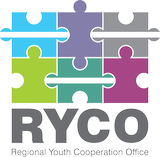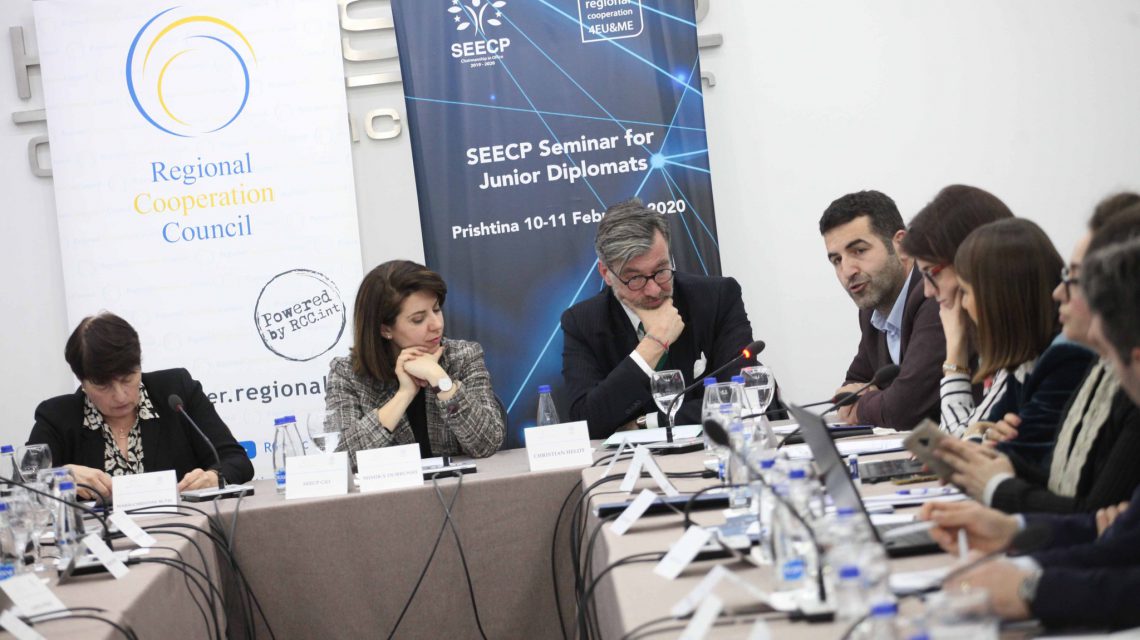PRISTINA – RYCO Deputy Secretary General Mr Fatos Mustafa took part in the South-East European Cooperation Process (SEECP) Seminar for Junior Diplomats organized in Pristina on 10-11 February when he discussed the future of the Berlin Process with a special focus on boosting regional cooperation among youth in the Western Balkans.
The panel discussion moderated by GIZ expert supporting SEECP Chairmanship in Office Ms Mimika Dobroshi also hosted German Ambassador in Kosovo* H.E. Mr Christian Heldt as well as French Ambassador in Kosovo H.E. Ms Marie-Christine Butel.
The participants discussed the Franco-German cooperation as a model for peace and reconciliation and the lessons the youth of the region can draw from these experiences. Moreover, they also focused on the importance of youth potential and engagement in the EU integration, regional cooperation and the Berlin Process for the Western Balkans as an important segment for a prosperous region.
Mr Mustafa presented the RYCO establishment process but also highlighted the organization’s achieved results. He underlined the key challenges of youth in the Western Balkans and pointed out that these challenges are various – administrative, political, economic and employment.
RYCO Deputy Secretary General also discussed the education across the region and touched upon the PISA results. He said that the region is facing a lack of exchange opportunities for young people and concluded that more travels are needed within the region and across the region’s societies to change the status quo.
SEECP was launched in 1996 in Sofia to strengthen regional cooperation and trust, good neighborly relations, stability and security, enhanced economic relations, engagement in the human dimension, justice, the fight against organized crime, and fight against terrorism. It consists of thirteen participants: Albania, Bosnia and Herzegovina, Bulgaria, Croatia, Greece, Kosovo, North Macedonia, Moldova, Montenegro, Romania, Serbia, Turkey, and Slovenia.
________________
*This designation is without prejudice to positions on status, and is in line with UNSCR 1244 and the ICJ Opinion on the Kosovo Declaration of Independence



